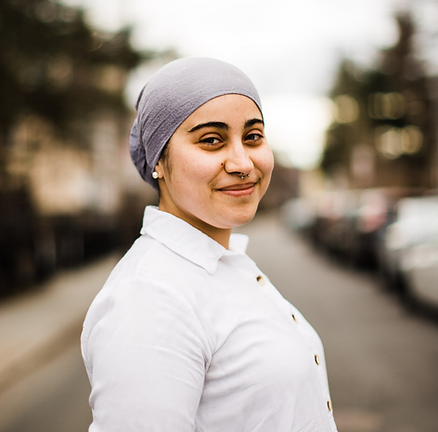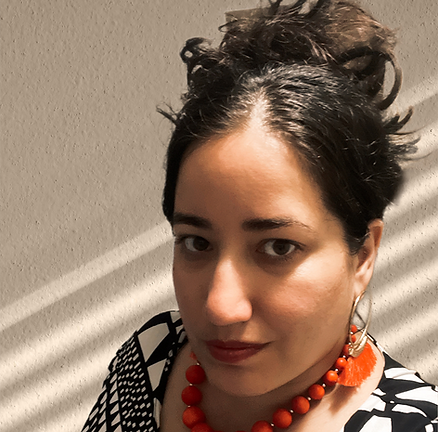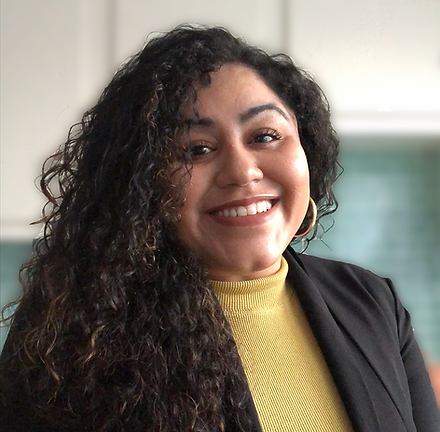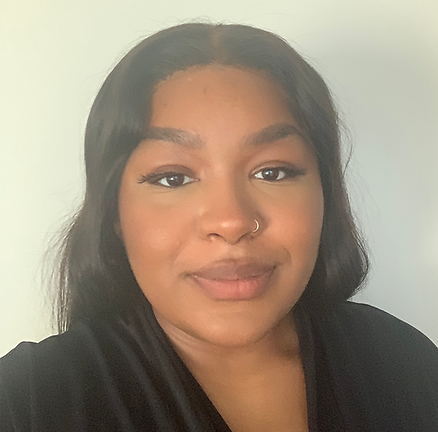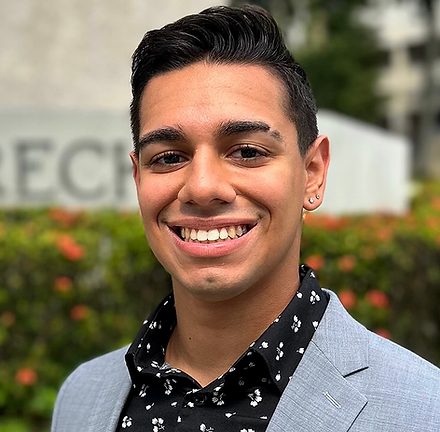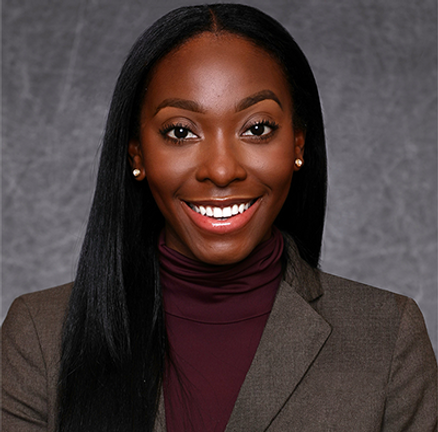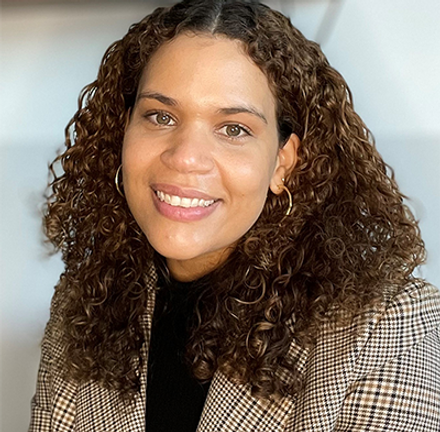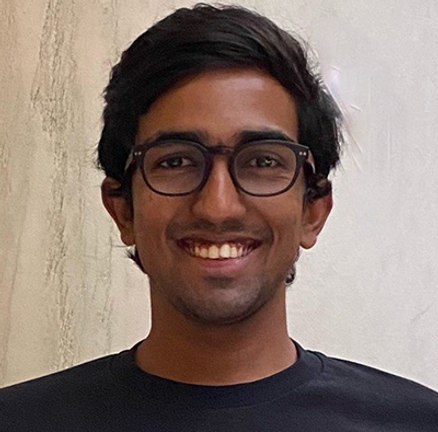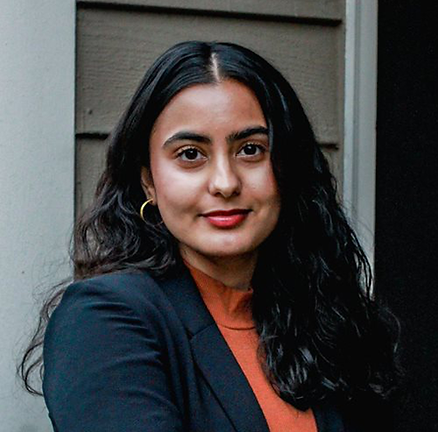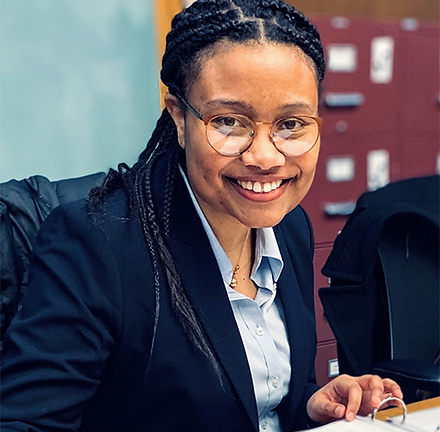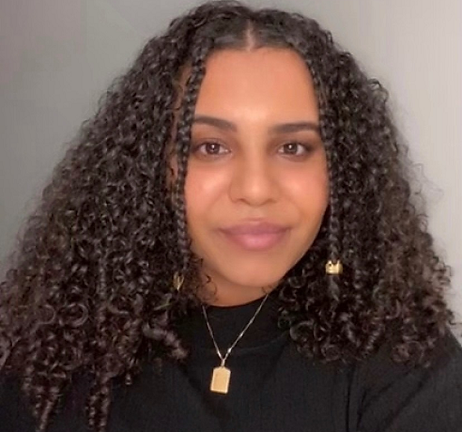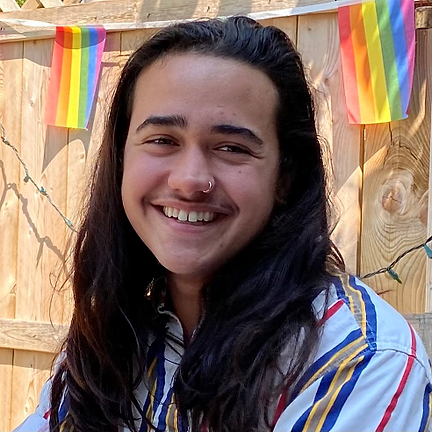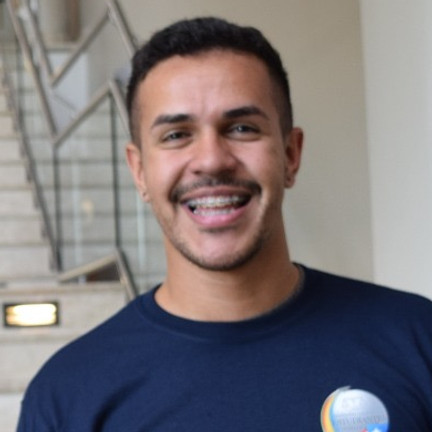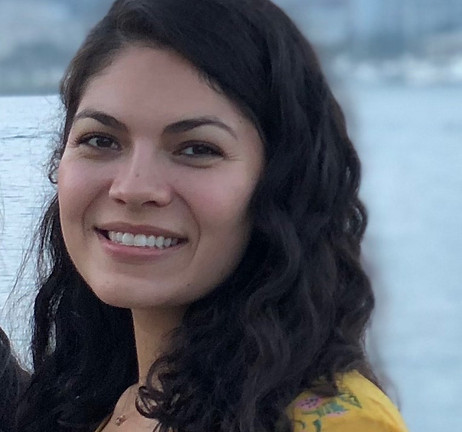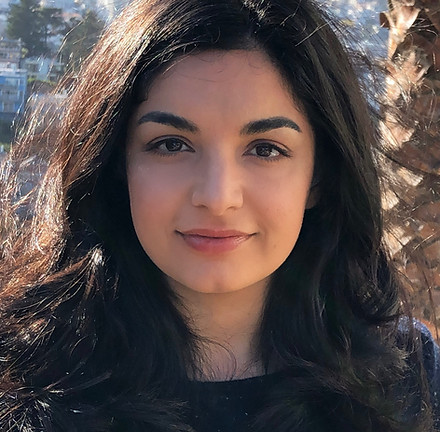
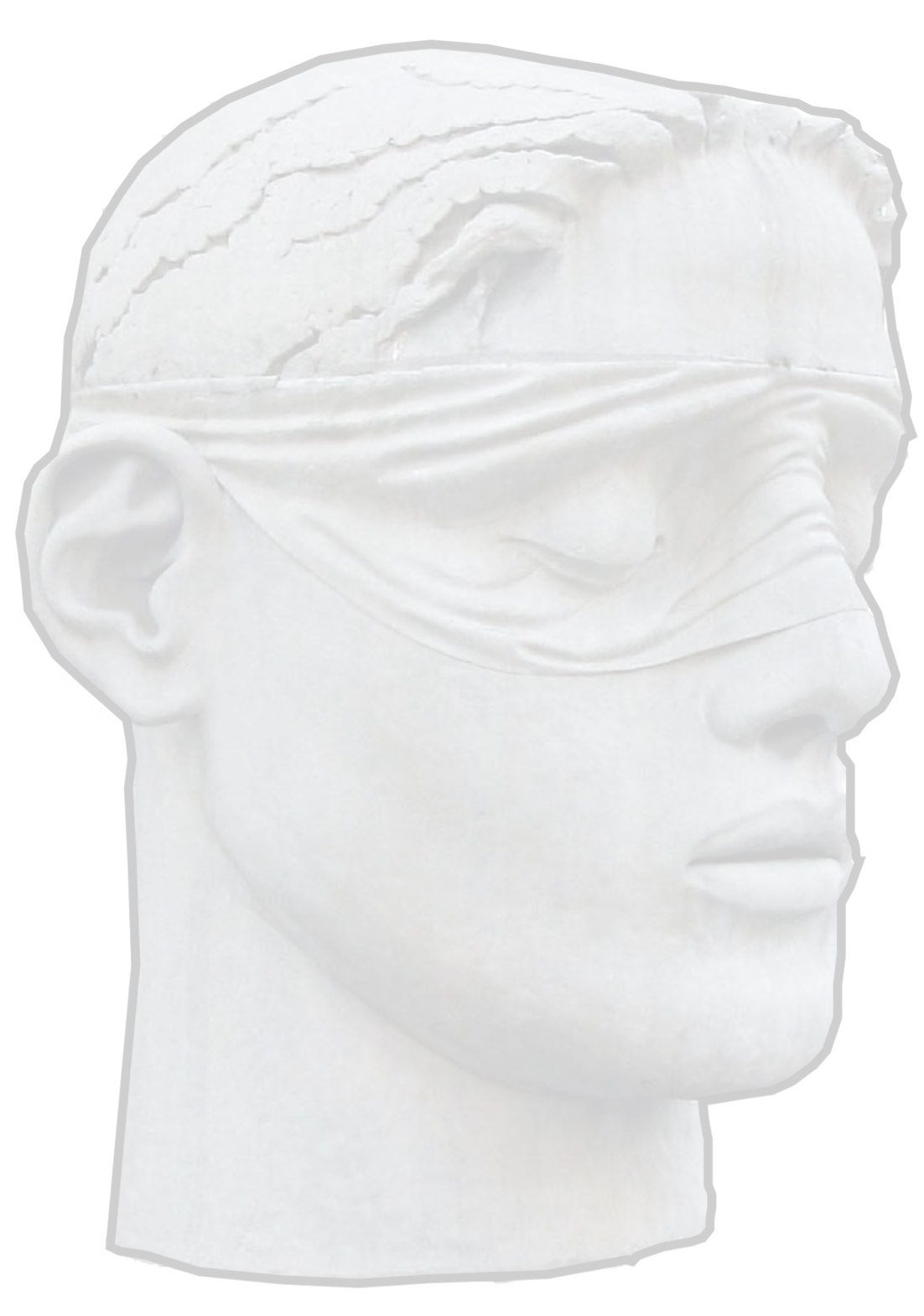
2022-2023
FELLOWS
she/her/hers
Marwa Sayed
IfRFA fellowships are no longer available.
This page is for archival purposes.
Selena Coppa-Caldera
she/her/hers
Marwa Sayed
she/her/hers
Marwa Sayed is a first-year law student at CUNY Law. She graduated from Boston University with a BA in biological anthropology and African American studies. Prior to law school, she worked as an Americorps Legal Advocate with Greater Boston Legal Services and the Massachusetts Law Reform Institute where she advocated for people experiencing homelessness. Marwa also worked at the Massachusetts Coalition for the Homeless helping create policy changes to keep people housed. Her passion for this work comes from her experiences as a Muslim child growing up in the PATRIOT Act era. Marwa lives in Queens, New York where she enjoys food from all corners of the world at her fingertips.
What’s a freedom of expression issue that you wish got more attention?
Policies like the Stop WOKE Act and Don't Say Gay bill that legitimize government intrusion into educators' and students' free speech as well as the reporting and data storage mechanisms that are built to house these complaints that result from these policies.
Karem Herrera (pronounced "KAH – rem") is a proud Latina, DACA recipient, and first-generation law student. Karem is a 2L at CUNY School of Law, and she earned her B.A. from the University of California, Berkeley. Karem serves on the board of the Public Interest Law Association at CUNY Law, and she worked as a legal intern with the Center for Constitutional Rights and the National Domestic Workers Alliance. Before law school, Karem worked at Centro Legal de la Raza in Oakland, California as an immigration paralegal. She proudly served as a union steward while at Centro.
Karem’s determination to work to advance the rights of immigrant communities comes from her and her family’s identities as immigrants. She believes systemic change must be inclusive of all voices, informed by compassion, and community led.
What’s a freedom of expression issue that you wish got more attention?
Because of the inherent and harmful power dynamics embedded in our carceral systems, speaking up against poor treatment comes at a risk for those who are incarcerated. For individuals incarcerated in our immigration detention centers, the risk of retaliation includes deportation. Protecting the right of detained individuals to protest their treatment, free from retaliation, is an important way to advance First Amendment freedom of speech rights for all our community.
Obi Ananaba is a first year J.D. candidate at NYU Law School. She graduated from Columbia University in 2019 with a degree in Psychology and a double concentration in Education and Race & Ethnicity Studies. Obi is interested in using the law to build power in marginalized communities by crafting creative legal defense strategies to protect organizers from institutions of organized violence. After graduation, Obi hopes to use her law degree to continue working toward abolition.
What’s a freedom of expression issue that you wish got more attention?
The use of rap lyrics in criminal proceedings as another way the criminal punishment system targets and criminalizes Black men and Black creative expression.
Ángel A. Rodríguez Ramírez is a first-year J.D./Master in Public Administration joint program candidate at the University of Puerto Rico School of Law. One of his most fulfilling experiences in law school is being a member of the Amicus Justitiae Pro bono. Prior to law school, he graduated from the University of Puerto Rico at Ponce in 2022 with a B.A. in Forensic Psychology with an emphasis on Rehabilitation Services. His enthusiasm for First Amendment issues surges from a history of advocating for post-secondary education accessibility through student representative bodies. His interests revolve around political censorship and retaliation towards underrepresented communities in the United States and Puerto Rico, and the role of colonialism in such phenomenon. Ángel’s goal is to provide legal support to communities, organizations, academics, and others that aim for social justice based on free participation in democracy.
What’s a freedom of expression issue that you wish got more attention?
Retaliation from law enforcement through excessive force and arrests should be addressed with a higher priority due to its history and recent events throughout the jurisdiction of the United States. In order to achieve social and political change, it is crucial to advocate for proper policy reforms and protect marginalized groups from the violence of government entities. Most importantly, these issues need to be analyzed through the lens of anti – [colonialism, racism, sexism, classism, and other forms of discrimination].
Selena Coppa-Caldera is a first-year JD student at Emory University School of Law. Originally from New York City, in 2022 she graduated magna cum laude from the University of Washington, majoring in Law and Policy and minoring in Labor Studies. Prior to law school, she was a veteran and anti-war organizer who worked in the area of military free expression, as well as a labor organizer who performed direct service work and advocacy for the unhoused. Selena is passionate about changing the inaccessibility of legal representation to low-income communities, especially those of color, and plans to return to the Pacific Northwest to work in public interest.
What’s a freedom of expression issue that you wish got more attention?
Across America, incarcerated people have their political reading material restricted at the arbitrary and self-serving whims of prison officials, including materials on collective action and books critical of the racialized nature of the prison industrial complex. It is highly dangerous if the government is able to establish that the policing power of the state demands citizens unable to challenge it.
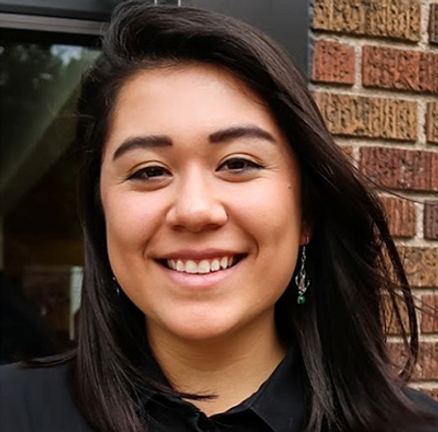
Mica Standing Soldier
she/her/hers
Mica Standing Soldier is a second year J.D. candidate at the University of Minnesota Law School. At the heart of her advocacy is a collective community pursuit towards justice. In addition to school, Mica clerked at the Legal Rights Center, providing legal and community support during the historic trial of Derek Chauvin. She is an enrolled citizen of the Oglala Lakota Nation. Mica lives in Minneapolis, Minnesota, with her partner, her cat, and an active Shudder subscription.
What’s a freedom of expression issue that you wish got more attention?
Indigenous sovereignty and the First Amendment meet at the crossroad of the Establishment Clause, guaranteeing the freedom of religion; little to no precedent exists in regards to the remaining freedoms. Recent anti-protest and critical infrastructure laws directly violate the freedoms of speech and association for Indigenous people.
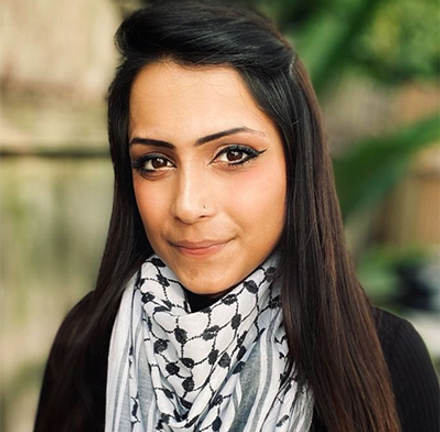
Tara Ahluwalia
she/her/hers
Tara Ahluwalia is a desi law student at Tulane University Law School. Originally from Boston, MA, she graduated from the University of Massachusetts – Amherst in 2020 with a B.A. in History, and a double minor in Sociology, and Women, Gender, and Sexuality Studies. In undergrad, Tara concentrated in issues of race and colonialism, before narrowing her interest to social movements and policing. Her passion for First Amendment issues comes from both writing a history thesis on the Radical factions of the Civil Rights movement and through personal experiences as a local organizer. She is interested in how various forms of censorship disproportionately silence Black and brown organizers in the struggle for racial and economic justice. Tara is pursuing law so that she may serve the movement as a legal resource, standing among journalists, workers, organizers, academics, students, artists, and all other collaborators in the struggle to build a world no longer premised on militarism, racism, and poverty.
What’s a freedom of expression issue that you wish got more attention?
How the State Department deploys its resources to regulate censorship of anti-imperialist organizers through algorithm suppression, sophisticated propaganda across a wide range of institutions, various forms legislation, invasive surveillance, and extrajudicial force – particularly its heightened interest in suppressing criticism of Israel as a strategic military ally, thereby stifling conversations about the devastating material costs of endless occupation to Palestinian lives and livelihoods, to other non-Ashkenazic Jewish people in Israel/Occupied Palestinian Territories, and the consequent harm to Black and Brown people domestically in the U.S. through the Deadly Exchange.
Nneka Onyekwuluje
she/her/hers
Nneka Onyekwuluje is a first-year Juris Doctor (J.D.) candidate at Case Western Reserve University School of Law in Cleveland, Ohio. She is a proud member of Alpha Kappa Alpha Sorority Incorporated and recipient of the Newman Civic Fellowship. In 2021 she graduated cum laude from George Washington University, where she double-majored in International Affairs and Africana Studies. Prior to attending law school, Nneka served as a policy intern for Congresswoman Bonnie Watson Coleman and later worked for a political consulting firm helping to ensure the election of minority federal and state public officials.
What’s a freedom of expression issue that you wish got more attention?
Politicians across the nation are attempting to ban Critical Race Theory in academia and the workplace. Censoring American history in this way further perpetuates falsified narratives that directly contribute to complacency and racism within our country.
Marlene Berroa Rodriguez
she/her/hers
Marlene Berroa Rodriguez is a first-year student at CUNY School of Law. She is passionate about movement lawyering and using the law to support and defend social justice movements. Prior to law school, she was a paralegal and Fully Accredited DOJ Representative at Make the Road New York, where she represented clients on immigration matters, conducted Know Your Rights workshops for community members, and worked closely with organizers. Marlene also worked at The Door's Legal Services Center, where she coordinated The Door's participation in the ICARE Program. She received her B.A in Psychology with a minor in History from CUNY Hunter College.
Hasala Ariyaratne
he/him/his
What’s a freedom of expression issue that you wish got more attention?
The inaccessibility of First Amendment protections for marginalized communities. One example is the targeting of non-citizen immigrant rights advocates when they exercise their free speech.
Hasala Ariyaratne is a J.D. Candidate and Technology Law and Policy Scholar at Georgetown University Law Center. He is interested in First Amendment law and how it is applied in today’s technological landscape. Prior to law school, Hasala worked as an analyst for a technology company. He earned his Bachelor of Science in Business and Engineering from Drexel University in Philadelphia. In his free time, Hasala enjoys cooking new dishes and taking long walks.
What’s a freedom of expression issue that you wish got more attention?
The First Amendment implications of regulating social media and the free speech implications of allowing foreign government to do the same in their respective countries.
Nirali Vyas
she/her/hers
Nirali Vyas is a J.D. Candidate at Vanderbilt University. She is passionate about racial justice, democratic representation, and money in politics. Prior to attending law school, she was a Research and Program Associate in the Democracy Program at the Brennan Center for Justice, where she conducted quantitative research about public campaign financing and other electoral reforms in New York state and at the federal level. Nirali also worked to develop scholarship on critical social issues at the Social Science Research Council and has completed internships at the Ford Foundation and the Trenton Prevention Policy Board. She earned her B.A. in Economics and Political Science from the College of New Jersey.
What’s a freedom of expression issue that you wish got more attention?
How corporate invocation of the First Amendment to protect business interests has diverted critical resources from poor communities of color and helped to sustain the racial wealth gap.
Iltaff Bala is a first-year law student at Case Western Reserve University School of Law. She is from Houston, TX, and she graduated from the University of Rochester in 2020 with a degree in Epidemiology. Prior to law school, she worked as an EMT and Diversity Workshop Facilitator. Her passion for social justice inspired her to pursue legal education to investigate the systemic injustices that she observed in her roles as a student, caretaker, and advocate. She is interested in applying critical race theory across many different legal practice areas to call out these issues and be part of the solution.
What’s a freedom of expression issue that you wish got more attention?
The anti-blackness that stands in the way of marginalized people’s access to their first amendment rights. We see this in the double standards faced by Black Lives Matter protesters and the way the legal system vilifies Black creators and organizers.
Makela Asantewaa Hayford is a second-year law student at Case Western Reserve University School of Law in Cleveland, Ohio. She is the proud recipient of the Congressman Louis Stokes Congressional Black Caucus Scholarship for her undergraduate degree and the Congresswoman Stephanie Tubbs Jones Public Interest Law Scholarship for law school. She earned her B.A. in Sociology with minors in African American Studies, Social Justice, and Organizational Behavior in 2018. Makela is interested in civil litigation as a tool for Social Justice.
Makela Asantewaa
Hayford
What’s a freedom of expression issue that you wish got more attention?
The First Amendment is not the great equalizer of public discourse; power and privilege play hidden roles in determining who is truly free to speak and what they are free to say.
Elias Fox Schmidt is a 2L JD/MSW student at the University at Buffalo School of Law. Elias is passionate about addressing and educating others on the legal and social issues that affect the trans community. After graduation, Elias hopes to continue serving the trans community in a legal capacity. Elias currently lives in Western New York and has four cats.
What’s a freedom of expression issue that you wish got more attention?
The recent use of the First Amendment to prohibit bans on conversion talk therapy for LGBT minors and how this disproportionately affects trans individuals.
2019-2020
FELLOWS
Korica Simon is a second year law student at Cornell Law School. She is also a graduate teaching assistant for an information science course at Cornell called Information Ethics, Law, and Policy, where she is able to engage with students on the ethics around up and coming technology and how the law should respond to these innovations. After graduation, she’s hoping to become a privacy lawyer focusing on freedom of expression issues that marginalized communities face in the age of technological surveillance.
What’s a freedom of expression issue that you wish got more attention?
I’m interested in the ways in which technological advancement has affected people’s freedom to express themselves and engage in activist work when they know they are being watched.
Jafet Martinez-Molina is a JD/MBA 2L student at the University of Puerto Rico Law School. He has developed a passion for working and learning about intellectual property and constitutional issues that develop around them. He is also a member of the Intellectual Property Pro bono, an online editor of Business Law Journal of the University of Puerto Rico and works for a small law firm that thrives in intellectual property and Startups.
What’s a freedom of expression issue that you wish got more attention?
I am interested in the importance of empowering every single person from marginalized communities to express themselves in the most creative ways without fear of any repercussions for assuring our first amendment rights.
Alyssa Morones is a a 2L at UCLA School of Law. Last summer she interned with the Reporters Committee for Freedom of the Press in Washington, DC and, prior to law school, worked in journalism in various capacities, including as a freelance writer covering health and education issues in California's Central Valley and as a newsroom intern for Education Week Newspaper. She earned her B.A. in Political Science from the University of Notre Dame.
What’s a freedom of expression issue that you wish got more attention?
The important role the First Amendment plays for marginalized and vulnerable communities to advocate for change, especially where other political routes for have been closed off, but also how often barriers to fully exercising these rights are unequally distributed onto these same communities.
Stacey Menjivar is a first-year law student at Boston University School of Law. She is interested in international human rights, immigration and asylum, and freedom of expression issues. She has previously worked as an admissions officer at Harvard University, and as a software consultant for Mercer Digital. She graduated from Princeton University in 2014 with a degree in Comparative Literature, specializing in Spanish and Portuguese Languages and Cultures. She lives in Boston, Massachusetts with her beloved puppy, Juno.
What’s a freedom of expression issue that you wish got more attention?
How established institutions (universities, sports teams, and the like) use their power and influence to silence their employees, thereby preventing the lawful exercise of their First Amendment rights. A clear example here is the NFL's treatment of Colin Kaepernick.
Sara Beladi is a J.D. Candidate at the University of San Francisco. She was previously a legal intern at the Center for Investigative Reporting (CIR) and at the Office of the Los Angeles City Attorney. Before attending law school, Sara worked in media, most recently as a magazine editor and a research and story development professional at a documentary production company. She is coauthor of “They Know Everything About You: How Data-Collecting Corporations and Snooping Government Agencies Are Destroying Democracy.”
What’s a freedom of expression issue that you wish got more attention?
The frequent misapplication of the confidential business information exemption of the Freedom of Information Act, an issue I became aware of at CIR.
